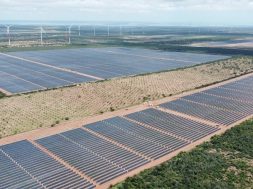
India has the second highest fatality average due to hazards of climate change. The situation is not going to get any better in the future also, especially for those living in coastal areas, including Chennai. A modelling study carried by the researchers of the Indian Institute of Technology (IIT) Chennai points to such uncomfortable climate-change-related scenarios in the future.
The researchers say that high carbon emissions provide more favourable environment for extreme rainfall events in the Chennai region. The modelling results suggest that the projected precipitation in Chennai can increase by 17.37% on a peak rainy day in the future compared to the current levels. These projections have been made for year 2075. Chennai is one of the cities in India where the per capita greenhouse gas (GHG) emissions fall in the higher category.
“The increased intensity and geographical spread of such rainfall events could lead to severe flood events that are likely to continue for more days in the future, thereby posing further risk and potential for damage to the local communities” said Prof. C Balaji, Lead Researcher, IIT Madras. The research also emphasised that the amount of precipitation is likely to increase dramatically by 183.5%, 233.9%, and 70.8%. These percentages represent the daily increase in precipitation in the future compared to the present for 2nd, 3rd, and 4th December, respectively, for the 2015 Chennai rainfall event. In addition to the above, the geographical extent of the region receiving extreme rainfall event is likely to get worse as the duration of the event would get longer. The south Indian states have encountered an increased number of heavy rainfall events leading to massive floods.
This study considers only one event, and thus the results are suggestive of increased rainfall and flooding. “Several cases during different seasons like pre-monsoon and post-monsoon need to be studied to arrive at better conclusions for providing a scientifically reliable quantitative responses of extreme rainfall events to climate change for all the stakeholders,” said Dr Balaji. Apart from seasons, ocean also plays a big part in these extreme rainfall events; studying these collective factors would lead to more precise conclusions.
This research has been carried out as part of the project ‘Climate change impacts on coastal infrastructure and the adaptation strategies’ funded by the Department of Science and Technology, Government of India, under the SPLICE-climate change programme. The study used Weather Research and Forecasting (WRF) model for predictions.
Dr P. Jyoteeshkumar and Dr P. V. Kiran are other two researchers who were involved in the study. The findings of the research have been published in Current Science.
–By Jyoti Singh
*****















